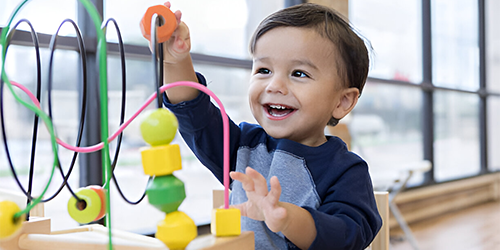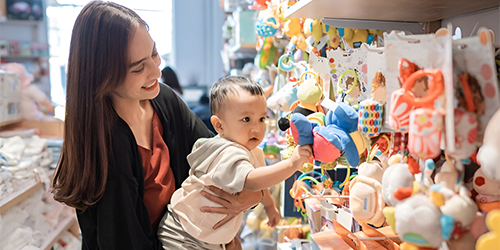


Becoming a parent is a remarkable journey, and watching your baby grow and achieve developmental milestones is a source of immense joy. As your little one progresses through various stages of development, having the right toys and tools in your baby kit can play a crucial role in supporting their learning and exploration. In this guide, we will explore developmental milestones and recommend toys and tools tailored to each stage, helping you create an enriching environment for your growing bundle of joy.
Understanding Developmental Milestones: A Roadmap for Parents
Developmental milestones are key achievements or abilities that mark the stages of a child’s growth. These milestones encompass physical, cognitive, social, and emotional development. While every baby is unique and may reach these milestones at their own pace, providing the right stimuli can aid in their progression.
Toys and Tools for Every Stage in Your Baby Kit:
1. Infancy (0-6 Months):

Developmental Focus:
Sensory Exploration and Motor Skills
Soft Rattles and Plush Toys:
Gentle rattles and plush toys with various textures stimulate the baby’s sense of touch and encourage the development of fine motor skills.
High-Contrast Mobiles:
High-contrast patterns and colors in mobiles promote visual tracking, supporting the baby’s visual development.
Soft Teething Toys:
Teething toys made of safe, soft materials provide comfort during teething and encourage mouthing, a natural exploration behavior.
2. Exploration (6-12 Months):

Developmental Focus:
Motor Skills and Cause-and-Effect Understanding
Stacking Rings and Nesting Cups:
Toys that allow stacking and nesting enhance hand-eye coordination and spatial awareness.
Activity Centers with Buttons and Levers:
Interactive activity centers with buttons, levers, and moving parts promote cause-and-effect learning and fine motor skills.
Soft Books with Textures:
Soft fabric books with different textures engage the baby’s senses and encourage exploration through touch.
3. Toddlerhood (1-3 Years):

Developmental Focus:
Language Development and Imagination
Building Blocks:
Sturdy building blocks help develop fine motor skills and support the understanding of basic principles like stacking and balancing.
Musical Instruments:
Simple musical instruments, such as shakers or small drums, enhance rhythm perception and encourage a love for music.
Puzzles with Large Pieces:
Basic puzzles with large, easy-to-grasp pieces promote problem-solving skills and hand-eye coordination.
4. Preschoolers (3-5 Years):

Developmental Focus:
Social Skills, Creativity, and Cognitive Abilities
Art Supplies:
Crayons, markers, and non-toxic paints allow children to express their creativity, enhancing fine motor skills and imaginative thinking.
Educational Games:
Simple board games or card games with age-appropriate rules help develop cognitive abilities and social skills.
Building Sets with Connectors:
Building sets with connectors enable children to create more complex structures, fostering creativity and problem-solving.
Tips for Selecting Toys:

1. Safety First:
Choose toys made of non-toxic materials and free from small parts that could be a choking hazard.
2. Age-Appropriate:
Select toys that align with your child’s current developmental stage to provide the right level of challenge and stimulation.
3. Multisensory Appeal:
Opt for toys that engage multiple senses, promoting a well-rounded approach to learning and exploration.
4. Encourage Open-Ended Play:
Toys that allow open-ended play foster creativity and imagination, encouraging your child to explore different possibilities.
5. Rotate Toys:
Introduce new toys periodically to maintain your child’s interest and provide fresh challenges.
Conclusion: Nurturing Your Child’s Growth with Thoughtful Play
As you curate your baby kit with toys and tools tailored to each developmental stage, you are not just providing entertainment – you are actively supporting your child’s growth and learning. Remember, the most meaningful play is not about the number of toys but the quality of engagement. Cherish these moments of discovery, and enjoy the journey of watching your little one reach new heights in their development. Happy parenting!

